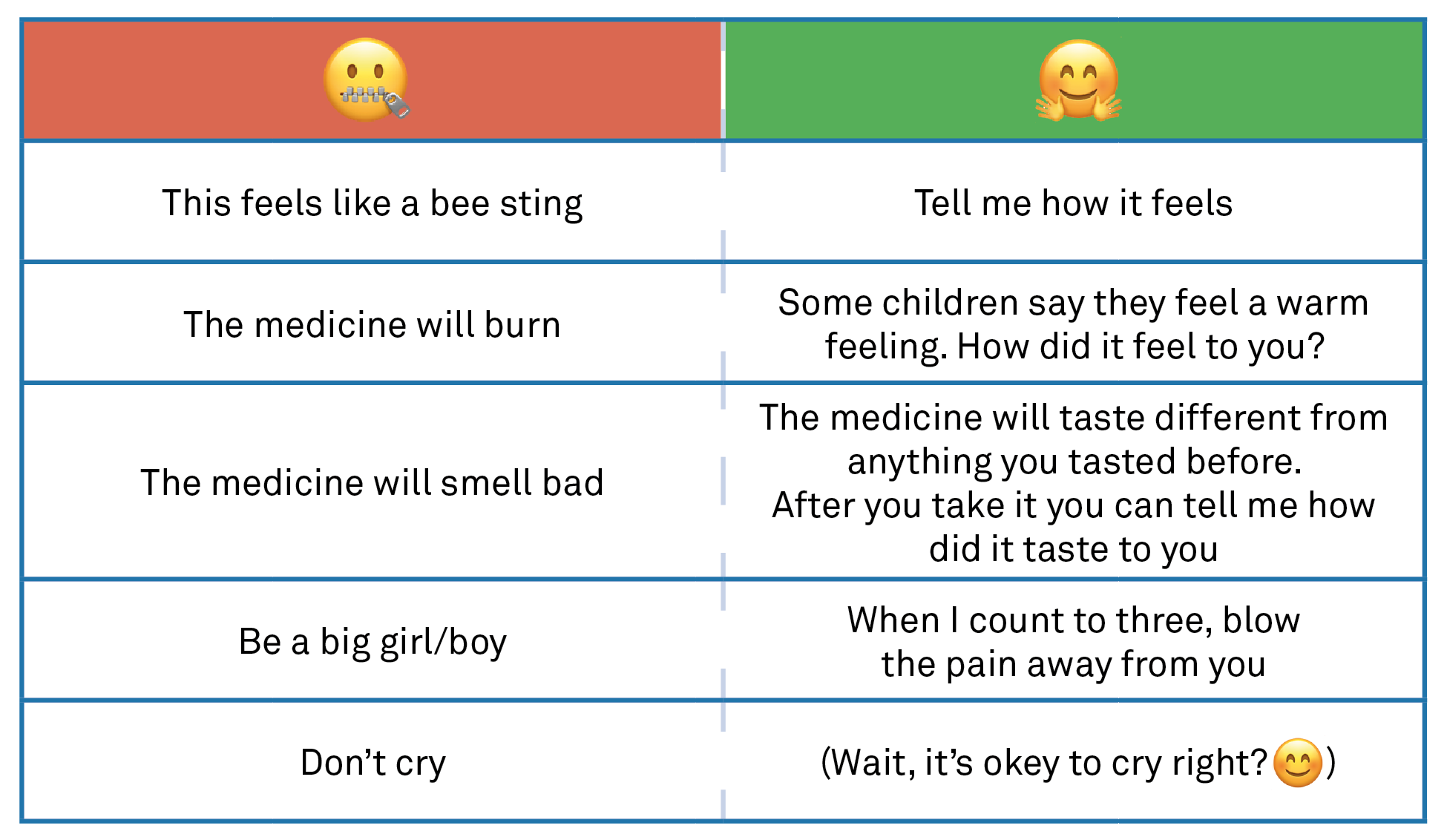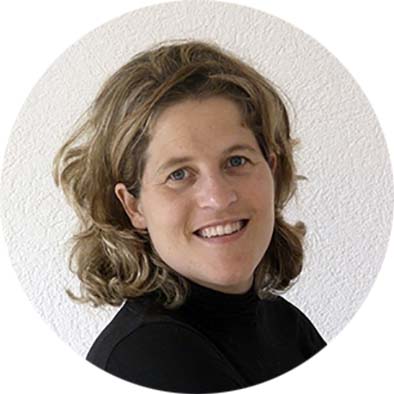Vocabulary for speaking about surgery
by Verena del Valle
Let’s start with a truth that we already know:
“What you say and what children can hear are two completely different things. For children of all ages, the wrong choice of words can have dramatically negative effects.”
1. Don’t focus on the negatives
Why saying “the medicine you need to take is very bad tasting”? No wonder the child does not want to taste it….. Why not saying instead “it is a medicine that is very important that you take, you have never tasted it before… Tell me afterwards how it tasted!”
More useful examples:

“You will get a medicine called anesthesia which works like a Special Brilliant Sleep. Why special? Because you don’t even have to be tired to fall asleep… it’s not the same sleeping as at home. Why brilliant? Because during this special sleep, you don’t notice anything about the operation!”

Verena del Valle
Psicóloga certificada Child Life
Mom but also certified Child Life specialist. Verena is a trained professional with expertise in helping children and their families overcome life’s most challenging events, particularly those related to healthcare and hospitalization.


